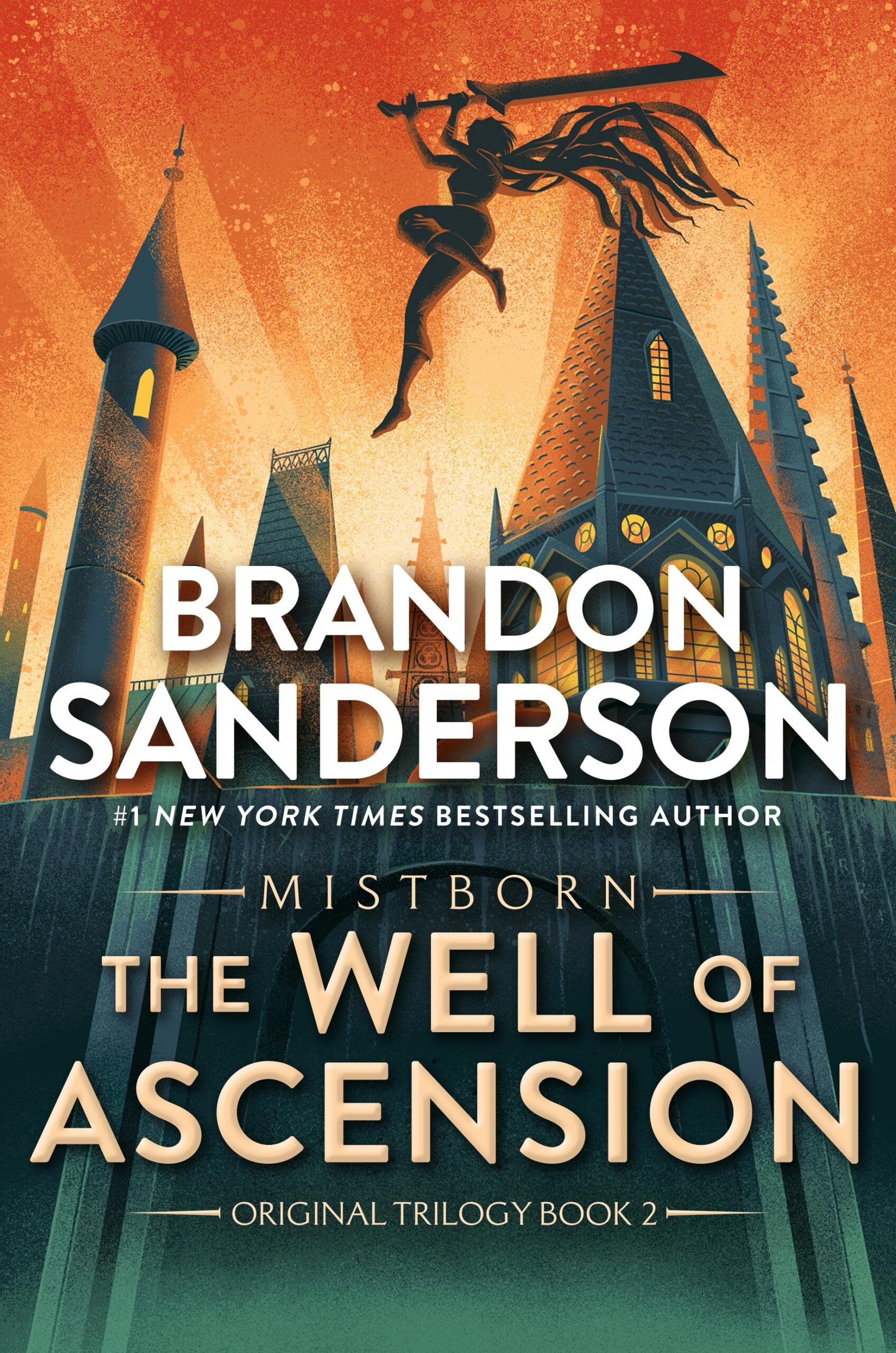
The Well of Ascension
29
by Sanderson, BrandonVin, the protagonist, is struggling with severe insomnia, relying on her Allomantic pewter to stave off exhaustion as she keeps vigil atop Keep Hasting’s walls. Her kandra companion, OreSeur, expresses concern over her unsustainable sleep habits, noting she averages only three to four hours a night. Vin’s restlessness is compounded by an ominous, distant thumping—a sound tied to cryptic logbook entries—and her growing anxiety over the threats facing Luthadel, including Straff’s army and the mysterious Mistborn Zane. Her inability to sleep reflects her inner turmoil and the weight of her responsibilities.
The chapter reveals Vin’s fixation on Zane, whom she awaits for a sparring match, despite OreSeur’s skepticism about his intentions. The kandra subtly warns her against trusting Zane, hinting at his dubious loyalty and influence over her. Vin dismisses these concerns, rationalizing her vigilance as necessary to protect the city. However, OreSeur’s disapproval lingers, suggesting Vin’s relationship with Zane may be more complicated than she admits, blurring the line between enemy and ally.
Vin’s emotional state is further explored through her reflections on the logbook’s eerie descriptions of pulsating sounds and a malevolent mist spirit. These elements heighten the chapter’s tension, mirroring her psychological distress. The persistent mists and the approaching dawn symbolize the unresolved threats looming over Luthadel, reinforcing Vin’s sense of impending doom. Her exhaustion and paranoia underscore the toll of her role as a protector, leaving her vulnerable to both physical and mental strain.
The chapter closes with OreSeur’s pointed critique of Vin’s “fixation” on Zane, challenging her motives and judgment. Their exchange highlights Vin’s internal conflict—balancing duty with personal connections—while foreshadowing potential betrayals or missteps. The unresolved tension between Vin’s vigilance and OreSeur’s warnings leaves the reader questioning Zane’s true role and Vin’s ability to navigate the escalating dangers surrounding her and Elend’s crumbling kingdom.
FAQs
1. What physical and psychological factors are contributing to Vin’s insomnia in this chapter?
Answer:
Vin’s insomnia stems from multiple sources. Physically, she’s using pewter to stave off fatigue, which masks her exhaustion but doesn’t eliminate her body’s need for rest. Psychologically, she’s haunted by the distant thumping sound (possibly connected to the Well of Ascension), the ominous mist spirit, and the political threats surrounding Luthadel. The chapter reveals her mind is consumed by protecting Elend’s kingdom, distrust of Zane, and confusion about her changing world. These compound her natural skaa wariness, making sleep feel like vulnerability despite her safer circumstances now.2. How does OreSeur demonstrate evolving characterization in this interaction, and what does his critique of Vin reveal about their relationship?
Answer:
OreSeur shows significant development by moving beyond passive obedience to offering genuine concern and critique. His canine mannerisms (like exaggerated yawning) suggest deeper immersion in his wolfhound role, while his pointed questions (“You’re waiting for him to come”) demonstrate perceptiveness. Their exchange reveals a relationship transitioning from master-servant to something more nuanced—OreSeur risks disapproval to warn Vin about her unhealthy fixation on Zane. His comment “You do not treat him like an enemy” shows he understands Vin better than she admits, highlighting his role as an unwilling but insightful confidant.3. Analyze the symbolic significance of the persistent mists in this chapter’s setting. How do they reflect Vin’s state of mind?
Answer:
The mists’ reluctance to dissipate at dawn mirrors Vin’s mental fog and unresolved tensions. Just as the mists stubbornly linger despite the growing light, Vin’s exhaustion and anxiety persist despite her pewter-enhanced alertness. The mists traditionally represent mystery and danger in this world, paralleling Vin’s unease about Zane’s absence and the approaching threats to Luthadel. The line “the mists persisted, however, reticent to give way before the sun” particularly underscores how Vin’s troubles resist simple solutions, much like the supernatural mists defy natural cycles.4. What contradictions does Vin display in her attitude toward Zane, and what might this suggest about her character development?
Answer:
Vin exhibits stark contradictions: she claims Zane is her enemy yet waits expectantly for their sparring; she distrusts him but is intrigued by his independence from Straff. This mirrors her broader internal conflict between her assassin instincts and emerging emotional needs. Her fixation suggests Zane represents something beyond rivalry—perhaps a reflection of her own Mistborn nature or the adrenaline of combat she secretly craves. OreSeur’s critique highlights how Vin rationalizes her interest (“keeping an eye on him”) while avoiding deeper self-examination about her attraction to danger and complexity in relationships.
Quotes
1. ““I have been around humans for a goodly number of years. I was under the impression that they needed regular sleep. I guess I was mistaken.””
OreSeur’s sarcastic observation highlights Vin’s growing insomnia and reliance on pewter to avoid rest, showing the physical and mental toll of her constant vigilance.
2. ““You’re burning pewter, aren’t you?” OreSeur asked. “To stay awake?” […] “That cannot be healthy, Mistress. You sleep barely three or four hours a day. Nobody—Mistborn, man, or kandra—can survive on a schedule like that for long.””
This exchange reveals Vin’s unsustainable coping mechanisms and foreshadows the consequences of her exhaustion, while OreSeur serves as a voice of reason.
3. “How could she sleep, knowing that the spirit watched her from the mist, ominous and hateful? How could she sleep when armies threatened to slaughter her friends, when Elend’s kingdom had been taken from him, when everything she thought she’d known and loved was getting muddled and obscure?”
This internal monologue captures Vin’s psychological turmoil and the multiple pressures weighing on her - supernatural threats, political instability, and personal identity crises.
4. ““You do not treat him like an enemy, Mistress.” […] “I was thinking, Mistress, that your fixation with Zane is disconcerting.””
OreSeur calls out Vin’s complicated relationship with Zane, hinting at her unconscious attraction to him despite his status as an enemy, which becomes a significant character dynamic.
